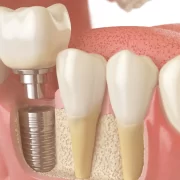Have you ever had a headache that won’t go away?
You’ve tried everything to get rid of it. You’ve taken pain meds, slept it off, and tried to distract yourself with a movie or a book. But nothing really helps.
That’s what protracted withdrawal feels like.
Protracted withdrawal, or PAWS, is the condition of suffering from the symptoms of withdrawal from drugs or alcohol for months after you’ve stopped using them.
These symptoms can be mild and annoying or, in some cases, debilitating. The worst part? Protracted withdrawal isn’t something that’s usually included as part of treatment plans.
But it should be. Learning how to handle PAWS can stop a recovering addict from relapsing.
Let’s talk more about lingering drug effects and how knowing about them can help lighten the load for you or a pal.
What Is Protracted Withdrawal?
Protracted withdrawal is sustained withdrawal symptoms that last longer than acute withdrawal.
Acute withdrawal refers to the initial symptoms that occur after quitting an addiction. These symptoms usually appear quickly, often within a few hours. And they tend to last for a short period.
The length of acute withdrawal varies from substance to substance, as listed below:
- Cannabis: 5 days
- Benzodiazepines: 1-5 weeks
- Nicotine: 2-4 weeks
- Methadone 2-3 weeks
- Stimulants: about 2 weeks
- Alcohol: 5-7 days
If you have had withdrawal symptoms for longer than these periods—or if your symptoms come back—you might be experiencing protracted withdrawal.
Protracted Withdrawal Symptoms
The stress of protracted withdrawal can lead to a relapse. It’s important to know the signs of long-term withdrawal so you know when to get treatment. Protracted withdrawal symptoms can include:
- Depression
- Anxiety
- Extreme irritability
- Loss of appetite
- Problems with memory
- Decreased cognitive ability
- Fatigue or insomnia
- PTSD-like flashbacks to drug use
- Low attention span
Like acute withdrawal symptoms, protracted withdrawal symptoms can vary depending on the drug. For example, recovering opioid users often experience insomnia, muscle tension, and poor impulse control. In contrast, those who used to engage in excessive drinking tend to have higher blood pressure, faster heartbeats, and anxiety.
If you’ve recently completed a drug detox program, keep an eye out for these symptoms. When you notice that your withdrawal symptoms haven’t abated within a month, it’s time to make some changes to your treatment plan.
Consider turning to a treatment center that takes into account who you are as a person, as well as your experience with PAWS. They will provide a unique regimen to help with your recovery. You can find more information on getting a tailored treatment plan at Harrishousestl.org.
How Long Does Protracted Withdrawal Symptoms Last?
Protracted withdrawal symptoms last between several months and a couple of years. It depends on the severity of your prior substance abuse. If you have fought drug misuse for a long time, or if you have consumed a large number of drugs, you are more likely to experience protracted withdrawal symptoms longer.
Fight Withdrawal Symptoms With Professional Help
Recognizing the symptoms of protracted withdrawal is the first step toward successful treatment. If you or someone you love is experiencing sustained negative effects from drug use, it’s important to be proactive and get help from a professional.
While detoxing and exploring a more fulfilling life without drugs, visit our other health blogs. You’ll find great advice there on making better lifestyle choices.










Comments